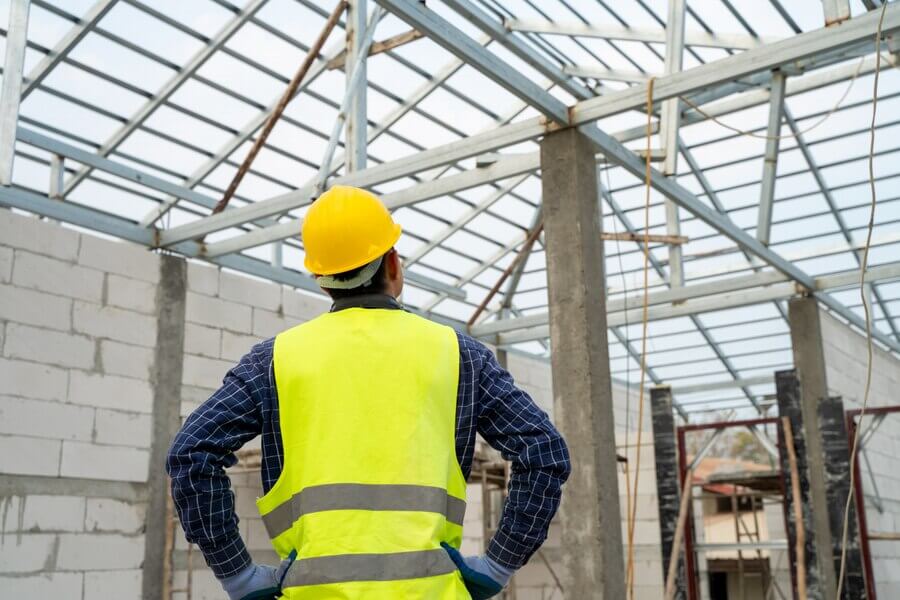Commercial construction projects can be intricate endeavors, often presenting a myriad of challenges and complexities. From managing budgets to coordinating various contractors and timelines, navigating through the process requires careful planning and strategic execution. In this article, we’ll delve into the realm of commercial construction, offering invaluable tips and insights to ensure a smooth buildout experience. Whether you’re embarking on a new project or renovating an existing space, these strategies will help streamline the process and minimize headaches along the way.
Understanding the Landscape of Commercial Construction
Commercial construction encompasses a wide array of projects, ranging from office buildings and retail spaces to restaurants and industrial facilities. Understanding this landscape involves recognizing the unique challenges and considerations that come with each type of project.
Factors such as zoning regulations, site conditions, and market trends play crucial roles in shaping the construction process. By gaining insight into these aspects, stakeholders can make informed decisions and effectively navigate through the complexities of commercial construction
The Importance of Thorough Planning
Thorough planning lays the foundation for a successful commercial construction project. It involves comprehensive assessments of project goals, budget constraints, and timelines. By establishing clear objectives and identifying potential obstacles early on, stakeholders can mitigate risks and optimize resources.
Effective planning also facilitates communication and collaboration among project team members, ensuring alignment and accountability throughout the process. Whether it’s developing detailed blueprints or creating contingency plans, investing time and effort in planning pays dividends in the form of smoother execution and superior outcomes.
Budgeting Essentials: Keeping Finances on Track
Budgeting is a cornerstone of commercial construction, with financial considerations influencing every aspect of the project. From initial cost estimates to ongoing expenses, meticulous budget management is essential for keeping finances on track. This involves accurately forecasting expenses, monitoring cash flow, and identifying opportunities for cost savings.
Additionally, effective budgeting requires flexibility to adapt to unexpected changes and unforeseen challenges that may arise during construction. By prioritizing transparency and accountability, stakeholders can ensure that financial resources are allocated efficiently, ultimately leading to a successful buildout within budget constraints.
Selecting the Right Contractors: A Critical Decision
Choosing the right contractors is one of the most critical decisions in commercial construction. Contractors play a pivotal role in bringing project designs to life, and their expertise and reliability can significantly impact the success of the buildout. Whether it’s hiring general contractors, subcontractors, or specialty trades, stakeholders must carefully evaluate candidates based on their experience, qualifications, and reputation.
Building strong relationships with contractors built on trust and communication is key to fostering collaboration and achieving project goals. By investing time and effort in the selection process, stakeholders can ensure that they have the right team in place to execute the project efficiently and effectively.
Coordination and Communication: Keys to Success
Coordination and communication are essential components of successful commercial construction projects. With multiple stakeholders involved, including architects, engineers, contractors, and vendors, effective communication channels must be established to ensure alignment and accountability. Regular meetings, progress reports, and digital collaboration tools can help streamline communication and keep all parties informed of project developments.
Additionally, proactive coordination among team members helps prevent delays and conflicts, ensuring that the project stays on track and within budget. By prioritizing coordination and communication, stakeholders can foster a collaborative environment conducive to achieving project objectives efficiently and effectively.
Streamlining Timelines: Strategies for Efficiency
Time is crucial in commercial construction, necessitating meticulous planning and efficient execution. Streamlining timelines involves setting realistic milestones, identifying critical activities, and allocating resources effectively. Strategies like phased construction and lean practices expedite the process while maintaining quality.
Leveraging technology solutions enhances project visibility and communication among team members. By implementing these strategies, stakeholders optimize timelines, reduce duration, and enhance efficiency throughout the construction process.
Addressing Regulatory and Compliance Issues
Navigating regulatory and compliance requirements is a fundamental aspect of commercial construction. From building codes and zoning regulations to environmental permits and safety standards, stakeholders must adhere to a myriad of legal and regulatory frameworks throughout the project lifecycle. This involves conducting thorough due diligence, obtaining necessary approvals, and ensuring compliance with applicable laws and regulations.
Additionally, engaging with regulatory authorities and stakeholders early in the planning process can help identify potential challenges and mitigate risks. By prioritizing regulatory compliance, stakeholders can avoid costly delays, penalties, and legal disputes, ultimately ensuring the successful completion of the project while upholding the highest standards of safety and quality.
Maximizing Space and Functionality
Maximizing space and functionality is a key objective in commercial construction, where every square foot counts. Whether it’s optimizing floor plans, enhancing workflow efficiency, or integrating innovative design solutions, stakeholders must carefully consider how to make the most of available space while meeting functional requirements.
This involves collaborating closely with architects, engineers, and interior designers to develop creative design solutions that balance aesthetics with practicality. Strategies such as modular construction, flexible layouts, and multi-use spaces can help maximize versatility and adaptability, accommodating evolving needs over time. By prioritizing space optimization and functionality, stakeholders can create environments that not only enhance productivity and comfort but also deliver long-term value for occupants and users.
Material Selection: Balancing Quality and Cost
Material selection in commercial construction is critical, impacting quality, durability, and cost-effectiveness. Balancing these factors involves considering material performance, longevity, and maintenance needs. Premium materials offer superior aesthetics but at a higher cost, while cost-effective alternatives may compromise long-term performance.
Thorough cost-benefit analyses and expert consultation help stakeholders identify suitable materials. Exploring sustainable options minimizes environmental impact and aligns with long-term goals. Striking the right balance ensures projects achieve optimal outcomes in aesthetics, functionality, and value.

Sustainability Considerations in Commercial Construction
Sustainability is gaining prominence in commercial construction due to increased awareness of environmental issues. Integrating sustainability involves adopting energy-efficient design, eco-friendly materials, and renewable energy solutions.
Strategies like daylighting and water conservation reduce environmental impact and long-term costs. Green certifications like LEED or BREEAM signal commitment to sustainability, enhancing marketability. Prioritizing sustainability reduces carbon footprint and creates healthier, resilient buildings for a sustainable future.
Managing Risk: Preparing for the Unexpected
Risk management is vital in commercial construction, where projects encounter various uncertainties. Stakeholders must address unforeseen site conditions, supply chain disruptions, and weather delays. Thorough risk assessments, contingency plans, and proactive mitigation strategies are essential.
Collaboration with partners, subcontractors, and insurers helps identify and manage risks effectively. Leveraging technology like BIM and predictive analytics enhances risk visibility and decision-making. Prioritizing risk management minimizes disruptions, protects against financial losses, and ensures project success.
Technology Integration for Enhanced Project Management
Technology integration is reshaping commercial construction, offering avenues to enhance project efficiency, productivity, and collaboration. Tools like BIM software, project management platforms, and mobile apps revolutionize project planning, execution, and monitoring.
These technologies streamline workflows, optimize resource allocation, and facilitate real-time communication among team members. Moreover, data-driven insights enable informed decision-making and proactive issue resolution. By embracing technology integration, stakeholders unlock efficiency and innovation, staying competitive in the construction industry.
Effective Project Oversight and Quality Control
Effective project oversight and quality control are crucial in commercial construction to ensure high performance and durability. Robust quality assurance processes, regular inspections, and corrective actions are essential. From materials testing to site supervision, diligent oversight identifies deficiencies and ensures compliance with standards.
Fostering a culture of quality and accountability among team members promotes proactive problem-solving and continuous improvement. Prioritizing oversight and quality control mitigates risks, minimizes rework, and delivers projects exceeding client expectations.
Collaboration Among Stakeholders: Building Strong Relationships
Collaboration is vital in commercial construction, requiring multiple stakeholders to align towards common goals. Strong relationships built on trust and transparency foster effective communication throughout the project lifecycle. Close collaboration ensures representation of all interests and achievement of project objectives.
Regular meetings and clear communication channels facilitate conflict resolution and collaborative problem-solving. Cultivating a collaborative culture encourages innovation and continuous improvement, enhancing success in the construction industry. Prioritizing collaboration enables stakeholders to leverage synergies and shared expertise, leading to superior project outcomes.
Addressing Common Challenges in Commercial Construction
Commercial construction faces various challenges like supply chain disruptions, labor shortages, and regulatory changes, impacting timelines and budgets. Stakeholders need proactive risk management and strategic planning to adapt and minimize disruptions.
Open communication and collaboration among team members enable effective problem-solving and shared solutions. By anticipating challenges and implementing proactive strategies, stakeholders navigate obstacles, ensuring successful project completion.
Celebrating Success: Reflecting on a Smooth Buildout
Celebrating success in commercial construction is crucial, offering a chance to appreciate the collective efforts of stakeholders. Whether it’s finishing ahead of schedule, meeting sustainability targets, or surpassing client expectations, recognizing milestones boosts morale and reinforces a culture of excellence.
Reflecting on successful projects helps identify best practices and areas for improvement, driving continuous growth. By acknowledging the dedication of project teams and fostering a positive work environment, stakeholders inspire motivation and innovation in future endeavors.
As you embark on your commercial construction journey armed with these invaluable insights, remember that success lies in meticulous planning, effective communication, and strategic decision-making. At General Contracting and Electrical Services LLC, we understand the intricacies of commercial construction and are here to support you every step of the way.
Whether you need assistance with project management, electrical services, or general contracting expertise, our team is ready to help turn your vision into reality. Don’t hesitate to reach out to us at (928) 451-6374 to discuss your project needs and discover how we can make your buildout experience smoother and more successful.



Recent Comments